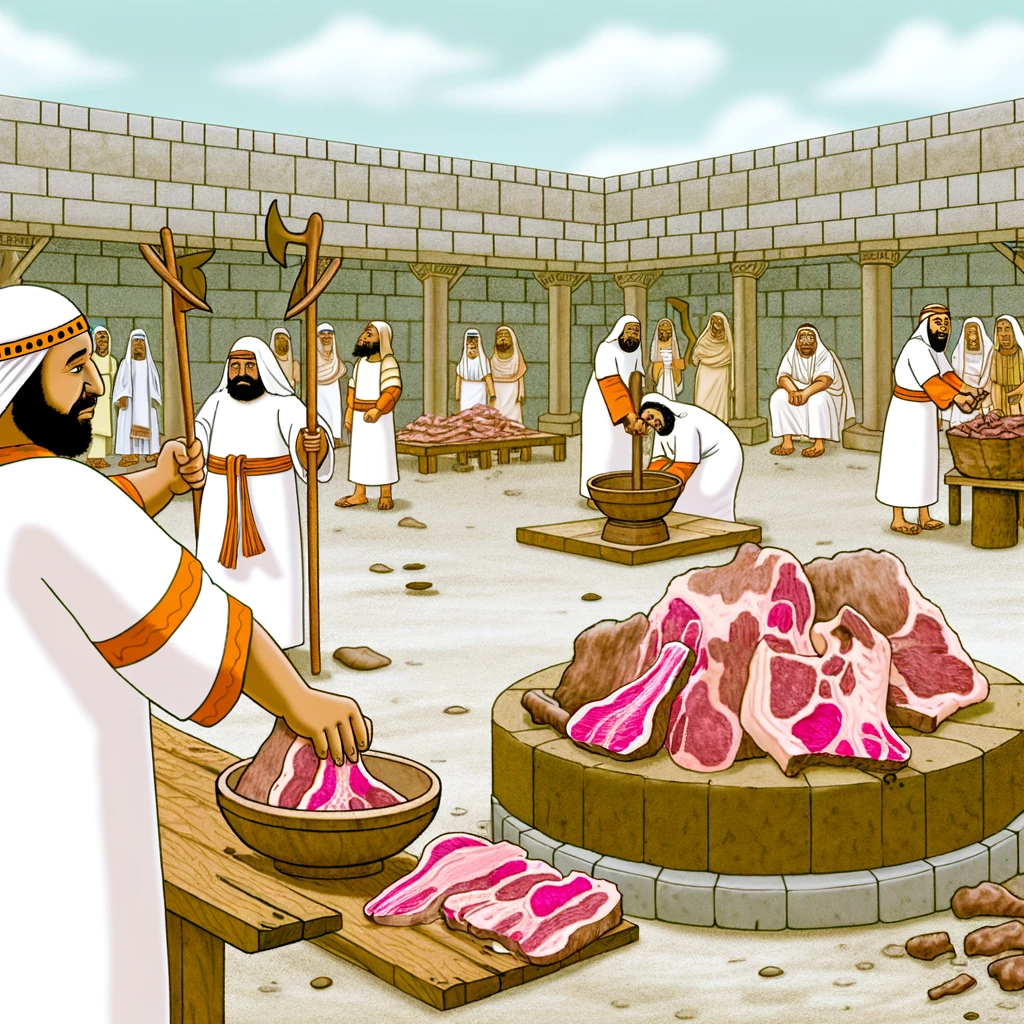Beyond the altar: The distribution of sacrifices in Leviticus 7.
Leviticus 7 delves beyond the act of offering sacrifices, focusing on their distribution and consumption. This chapter outlines how different offerings were divided, revealing insights into the social and religious order within the Israelite community.
Sharing Blessings: A communal aspect of sacrifice.
While portions of each offering were burned on the altar as a symbol of dedication to God, a significant part was designated for consumption. This practice emphasized the communal aspect of sacrifice, allowing individuals and families to partake in the blessings they offered.
Sustaining the priesthood: Recognizing their role.
Specific portions of certain offerings were allocated to the priests as their sustenance. This practice acknowledged the vital role they played in mediating between God and the people, ensuring their dedication and well-being.
Maintaining order: Distinguishing between offerings.
The chapter meticulously details how different types of offerings were distributed. This distinction served to maintain social order, ensuring proper respect for various rituals and upholding the specific purposes associated with each sacrifice.
Beyond ritual: Lessons for our modern lives.
While the specific practices of Leviticus 7 may not directly translate to our modern lives, the underlying principles offer valuable lessons for our own communities and individual spiritual journeys:
i. Sharing blessings: Consider ways to share your blessings and resources with others in your community.
ii. Supporting spiritual leaders: Acknowledge and appreciate the role of individuals who dedicate themselves to serving others and fostering spiritual growth.
iii. Maintaining ethical conduct: Uphold principles of fairness, respect, and social responsibility within your community.
iv. Finding personal meaning in rituals: Explore ways to personalize your spiritual practices and derive meaningful connections from them.
Conclusion.
Leviticus 7 sheds light on the system of sacrifice distribution in ancient Israel. By exploring these practices, we gain insights into the importance of shared blessings, supporting spiritual leadership, maintaining social order, and finding personal meaning within our own spiritual journeys. While the specific rituals may not be directly applicable today, the underlying principles offer valuable lessons for building stronger communities and fostering meaningful connections in the modern world.






